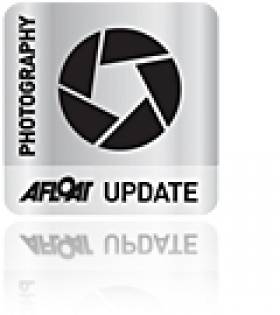Displaying items by tag: Wonderful Wild Wetlands
Cameras At The Ready For 'Wonderful Wild Wetlands' Photo Contest
#Photography - Over €500 in prizes are to be won in a new amateur photography competition to celebrate International Wetlands Day on 2 February 2014.
Held by Wexford County Council in partnership with the Irish Ramsar Wetlands Committee, the Wonderful Wild Wetlands Photography Competition is divided into two sections, with 18s and under and over 18s categories in both:
- ‘Wetlands in Wexford’ - a county competition where photographs may be taken in any location in Wexford
- ‘Wetlands and Farming’ - a nationwide competition where photographs may be taken anywhere in Ireland
The value of wetlands in the Irish landscape is that they embody and sustain a substantial percentage of our natural and cultural heritage, hosting a complex interaction of water, soil, plants and animals that fulfil many basic functions and provide important ecological services as well as being places of inspiration and consolation.
The winning images will be displayed in a special Wetlands photographic exhibition to be held in the County Hall of Wexford County Council during International Wetlands Day on 2nd February 2014.
To enter, be sure to make note of the following competition guidelines:
- All photographs must be original work, submitted as 10” (25cm) X 8” (20cm) hard copy unframed and on digitally on disc (original copies will be available for collection after exhibition)
- Please include competition category being entered, location and date photograph was taken
- Title, name, age (if 18 and under), address and contact telephone number on each entry
- Maximum of 2 entries per competitor
- 2 categories - Adult (over 18) Junior (18 and under)
- Photographs can be in black & white or colour
- Wexford Local Authority Employees are not eligible to enter
- The decision of the judging panel is final
- Please note you need a licence to take photographs of breeding birds, or any protected species, at or near their breeding site. These can be sought from www.npws.ie
The closing date for entries is Friday 17 January 2014. For submission details contact Niamh Lennon at Biodiversity & Forward Planning, Wexford County Council, County Hall, Carricklawn, Wexford or [email protected].





























































